
University System of Maryland est un réseau de 12 universités publiques et 3 centres régionaux dans l’État du Maryland au États-Unis qui ont développé au fil des ans une stratégie de l’utilisation des badges numériques en contexte universitaire.
Le portail du système de badges numériques permet d’octroyer une série de certification pour les compétences sociales (softskills). (AJOUT 06-07-2021: lien vers portail)
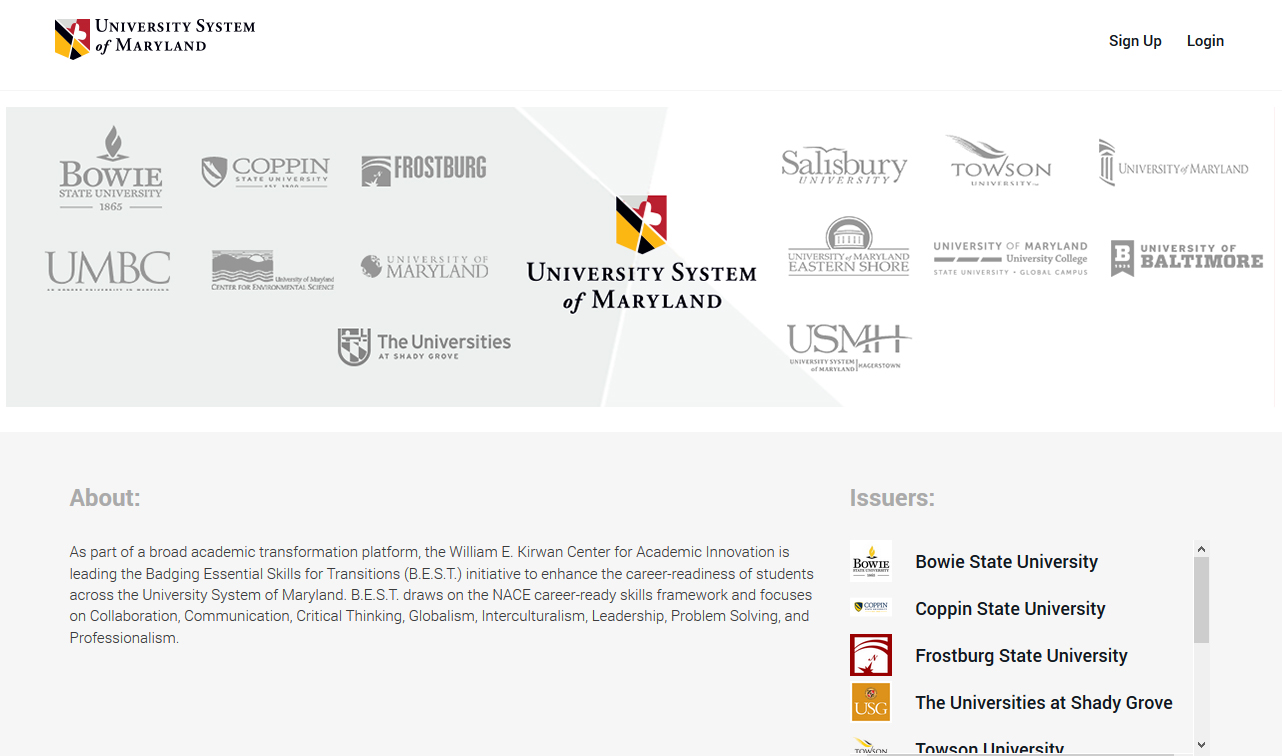
As part of a broad academic transformation platform, the William E. Kirwan Center for Academic Innovation is leading the Badging Essential Skills for Transitions (B.E.S.T.) initiative to enhance the career-readiness of students across the University System of Maryland. B.E.S.T. draws on the NACE career-ready skills framework and focuses on Collaboration, Communication, Critical Thinking, Globalism, Interculturalism, Leadership, Problem Solving, and Professionalism.
Le Center for Academic Innovation a développé depuis 2015 le projet Badging Essential Skills for Transitions (B.E.S.T.). Le rapport de projet BEST 2018 (pdf) présent bien l’ensemble du parcours.
Voici la liste des compétences initiales :
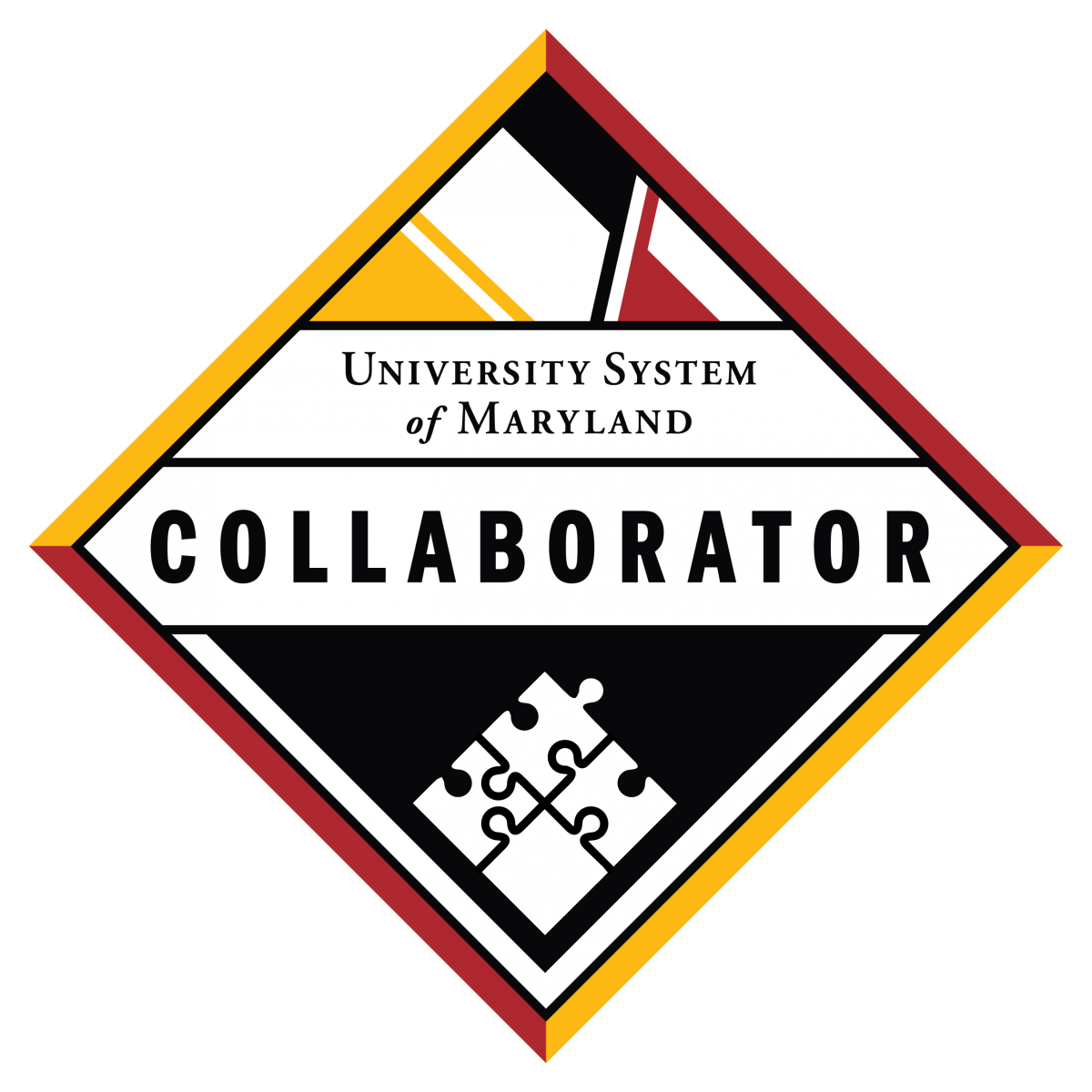 |
The Collaborator: Advances the work of a team by being a successful and contributing member.
The Collaborator advances the work of a team by effectively:
- Articulating one’s own role on the team and the roles of others.
- Integrating team members’ diverse viewpoints.
- Motivating and supporting others on the team.
- Building upon or synthesizing the contributions of others.
- Offering ideas, suggestions, alternative solutions, and feedback.
- Accounting for one’s own assigned role and responsibilities on the team.
- Negotiating, managing, and resolving conflicts when they arise.
|
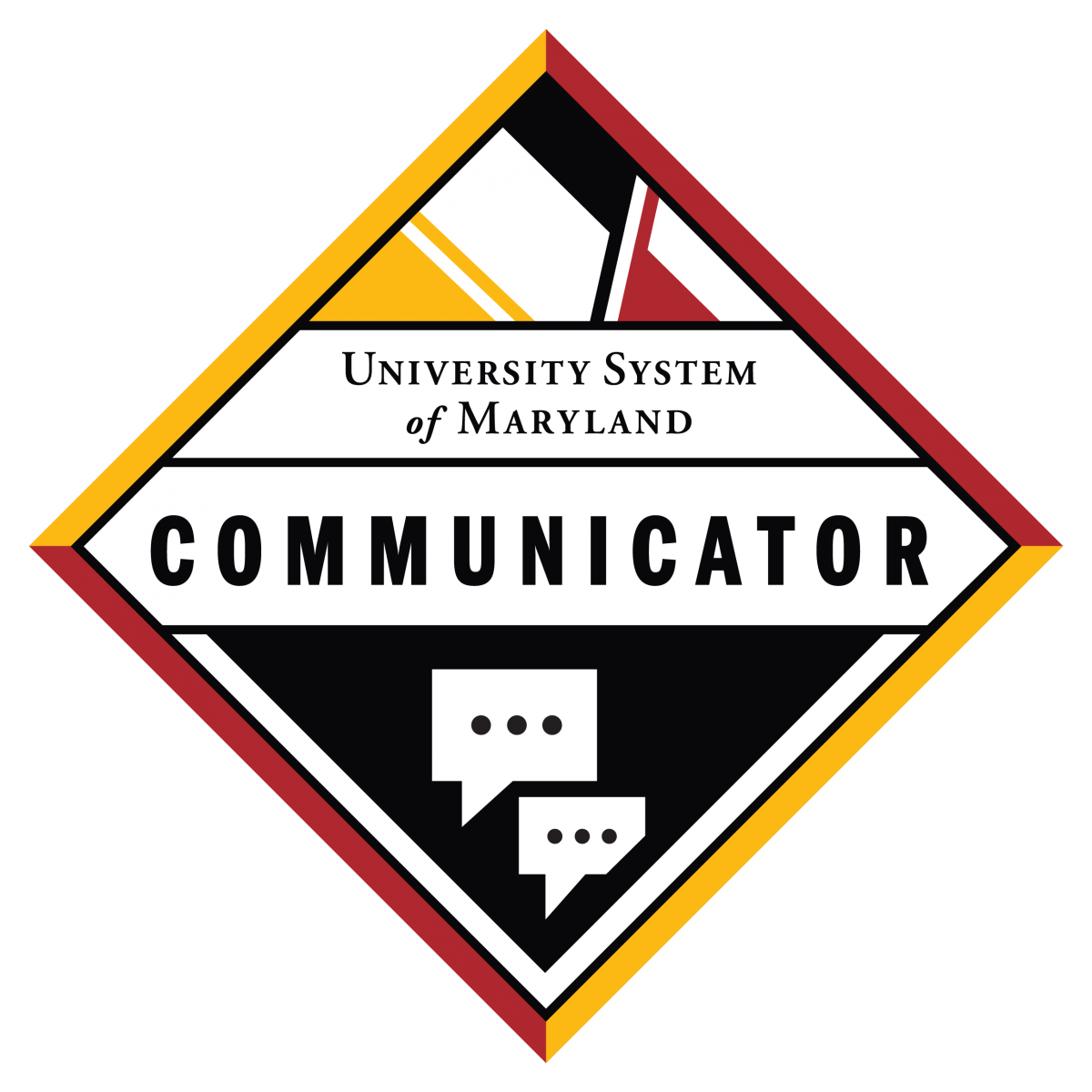 |
The Communicator: Articulates thoughts and ideas clearly and effectively in written and/or oral forms.
The Communicator expresses thoughts and ideas by effectively:
- Using syntax, grammar, and/or vocabulary appropriate to the context and modality.
- Ensuring messages are organized, clear, and consistent with any supporting material.
- Tailoring the message and delivery method to the topic, audience, purpose, and context.
- Reflecting on one’s own messages and adjusting as appropriate.
- Critically analyzing others’ messages.
- Engaging diverse and competing perspectives and the ways they influence communication.
|
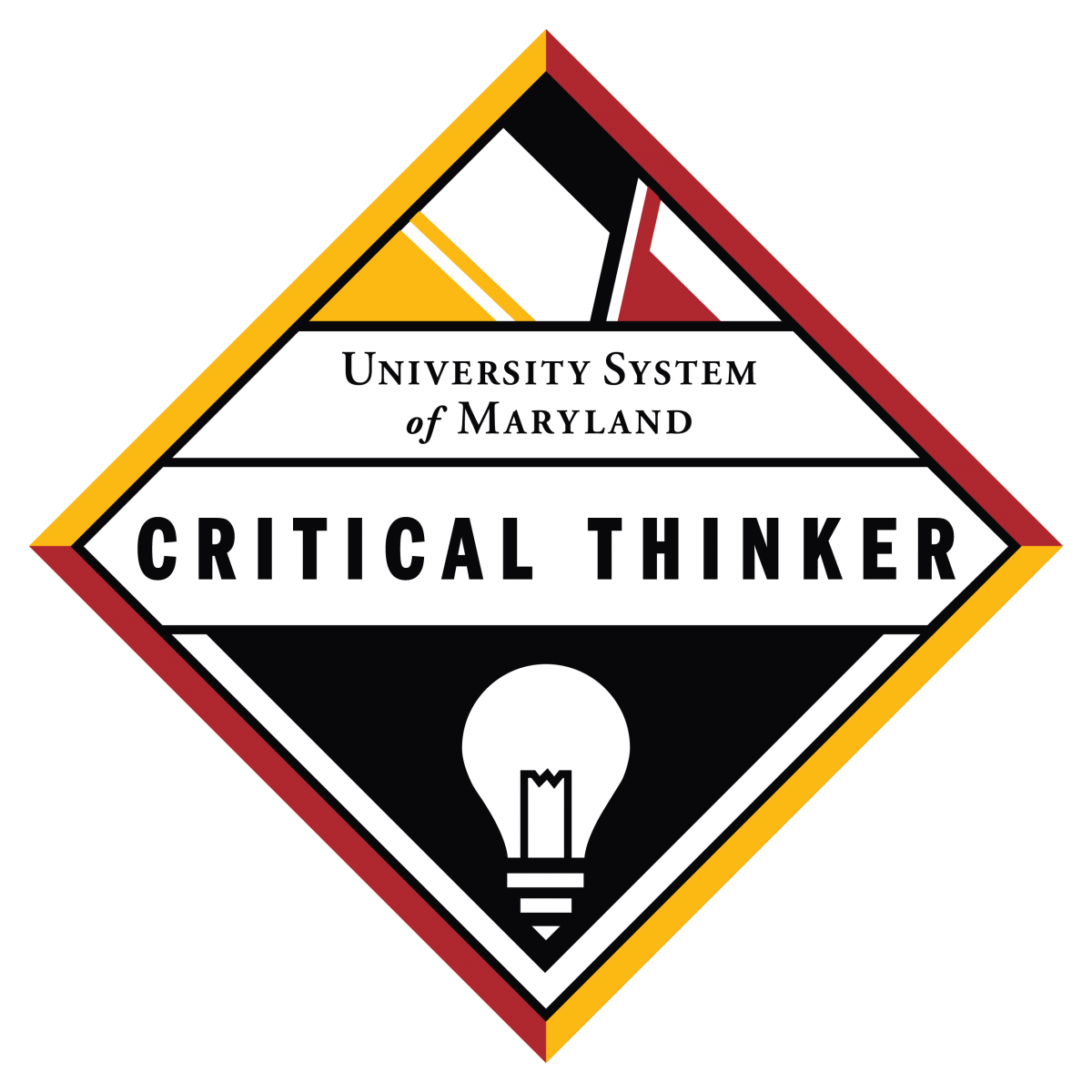 |
The Critical Thinker: Analyzes evidence and perspectives in relation to a situation and evaluates one’s own reasoning over time.
The Critical Thinker excels in the art of analyzing and evaluating thinking with a view to improving it by effectively:
- Raising vital questions and problems, formulating them clearly and precisely.
- Gathering and assessing relevant information, using abstract ideas to interpret it effectively.
- Coming to well-reasoned conclusions and solutions, testing them against relevant criteria and standards.
- Thinking open-mindedly within alternative systems of thought.
- Recognizing and assessing, as need be, one’s own assumptions, implications, and practical consequences.
- Communicating effectively with others in figuring out solutions to complex problems.
|
 |
The Globalist: Demonstrates ethical, social and environmental awareness of global systems and takes actions with personal and civic responsibility.
The Globalist demonstrates global awareness by effectively:
- Recognizing differences across and within world cultures and the diverse viewpoints that emerge from these differences.
- Identifying developments and trends associated with historical or contemporary global issues.
- Developing a sense of personal and civic responsibility with respect to global issues.
- Applying communication skills and strategies, including the ability to use another language, to interact effectively with people from other cultures.
- Analyzing the power structures, complexities and interdependencies of global systems.
- Evaluating solutions to global challenges using interdisciplinary perspectives.
|
 |
The Interculturalist: Navigates cultural boundaries by valuing, respecting, and learning from diverse people and perspectives.
The Interculturalist navigates cultural boundaries by effectively:
- Identifying one’s cultural norms and values.
- Articulating how one’s experience shapes cultural norms and values and how culture shapes personal experience.
- Analyzing how cultural norms and values affect one’s interactions with others.
- Recognizing the commonalities and differences that exist among people and cultures and how these factors influence one’s relationships with others.
- Understanding the influence of history, geography, religion, gender, race, ethnicity, and other factors on one’s identity and the identities of others.
- Questioning explicit and implicit forms of power, privilege, inequality, and inequity.
- Engaging with people and ideas from other cultures with courage, sensitivity, openness, and curiosity.
|
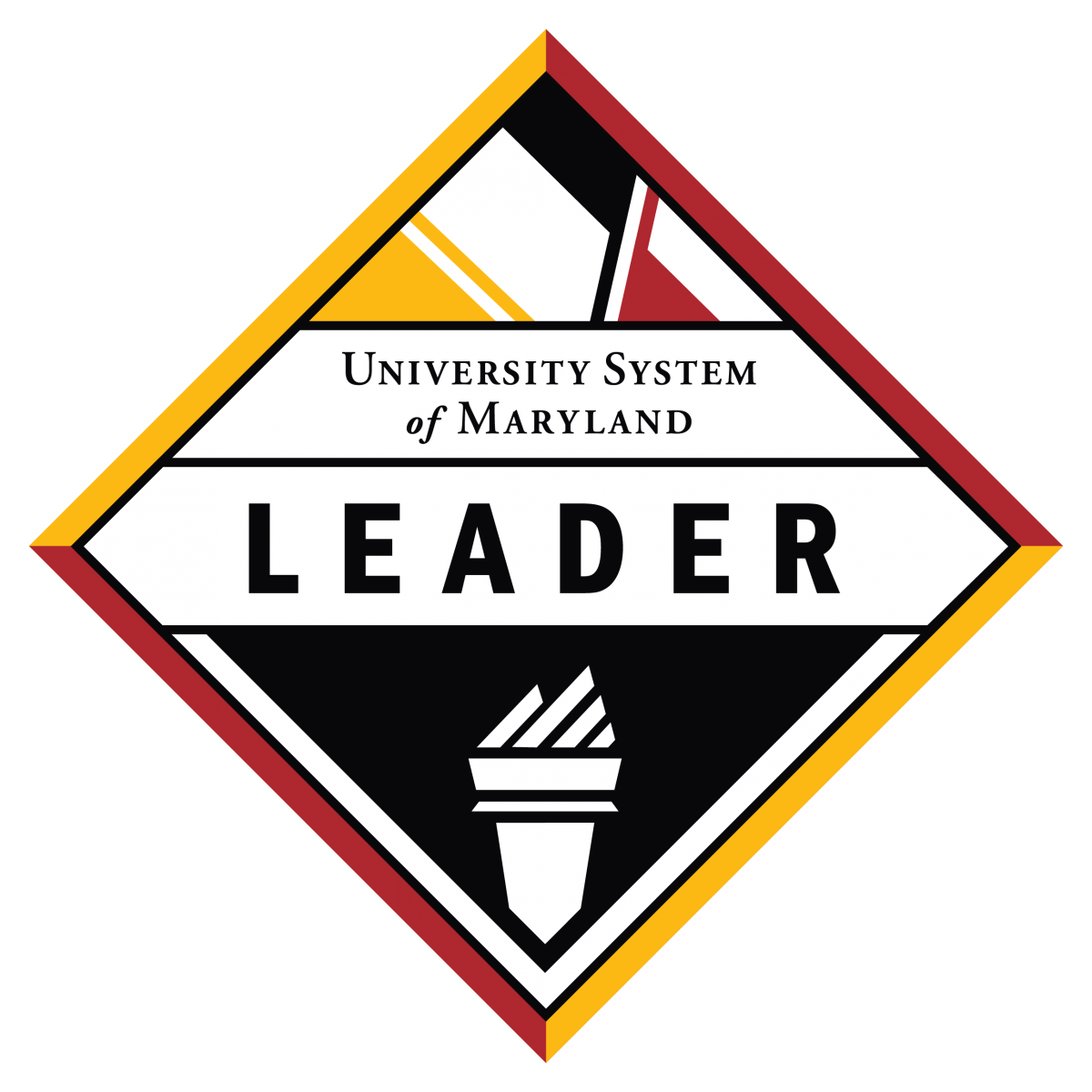 |
The Leader: Leverages the strengths of others to achieve common goals and uses interpersonal skills to coach and develop colleagues.
The Leader leverages the strengths of others to achieve common goals by effectively:
- Assessing individual and collective strengths, weaknesses, and capacities to achieve the desired goal.
- Engaging diverse or competing perspectives.
- Motivating others.
- Articulating a vision and strategy.
- Organizing, prioritizing, and delegating work, roles, and responsibilities.
- Reflecting on how one’s leadership affects process and outcomes and adjusting as appropriate.
- Reviewing outcomes and assessing implications for future plans.
|
 |
The Problem-Solver: Resolves complex problems through exercising sound reasoning to analyze issues and make decisions.
The Problem Solver tackles challenges alone or in teams by effectively:
- Articulating the problem.
- Identifying the desired end result.
- Brainstorming creative options for achieving the desired end result.
- Analyzing and selecting the option that best achieves the desired end result.
- Developing a plan of action that will achieve the desired end result.
- Enacting the plan of action and adapting as needed.
- Evaluating the outcomes in relationship to the desired goals.
|
 |
The Professional: Exhibits personal accountability, effective work habits, integrity, and commitment.
The Professional strives for excellence by effectively:
- Taking responsibility for one’s actions and outcomes.
- Examining the implications of one’s own behavior and decisions.
- Acknowledging mistakes and learning from them.
- Following through on commitments.
- Persevering in the face of challenges and changes.
- Acting with the interest of the larger community in mind.
- Evaluating one’s own performance over time and making adjustments.
|
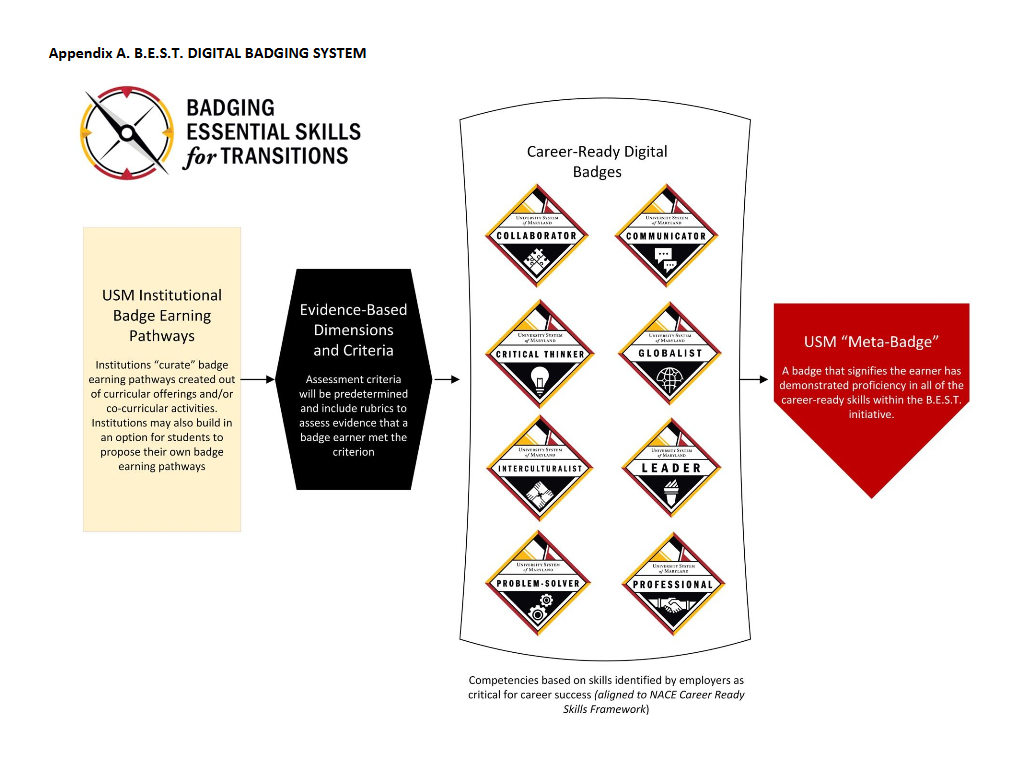 L’Université de Baltimore semble être celle qui a créé le plus de ses propres badges numériques disponibles à travers la même plateforme.
L’Université de Baltimore semble être celle qui a créé le plus de ses propres badges numériques disponibles à travers la même plateforme.
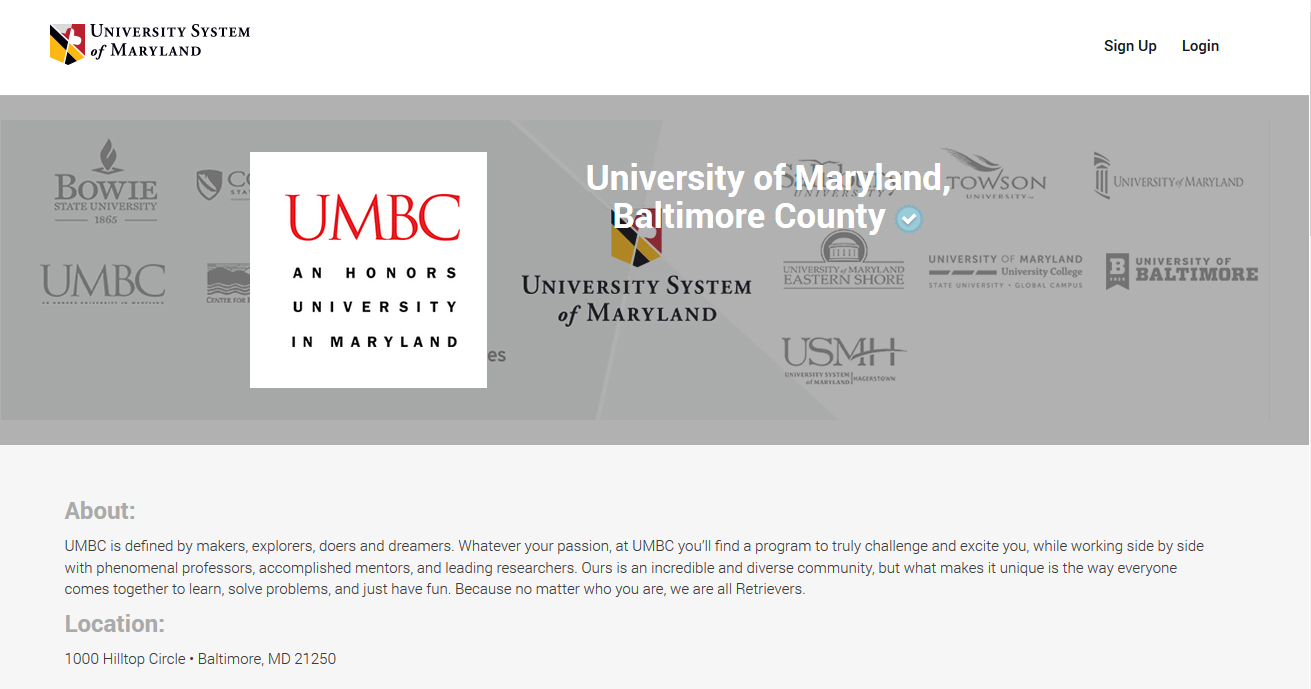
Par exemple, la certification de la formation Financial Smarts qui a été octroyé à plus de 70 personnes.
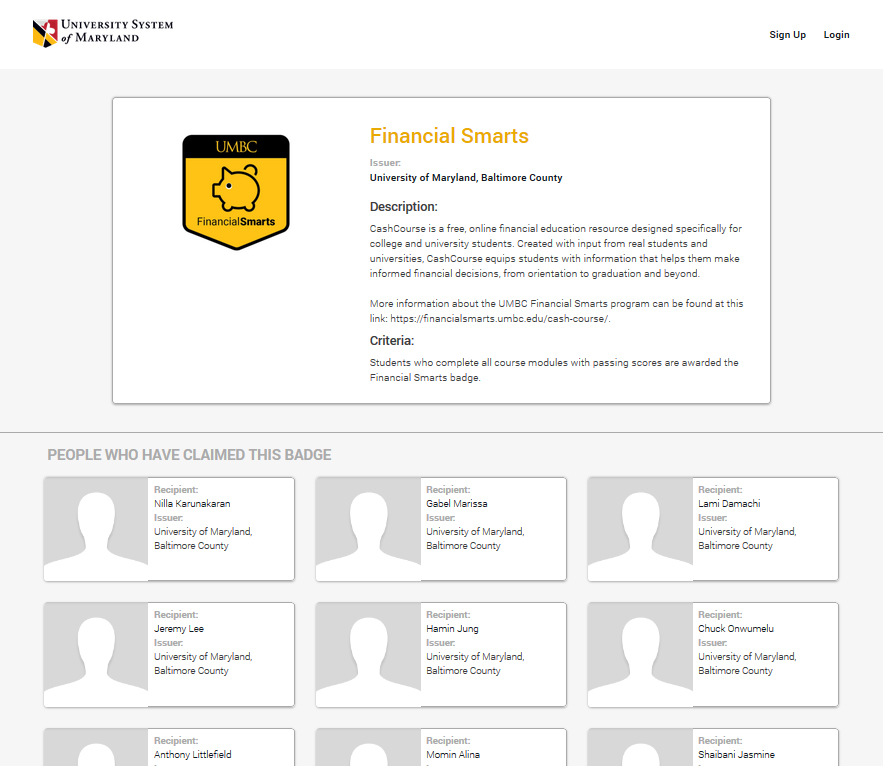
Voici un exemple d’un badge octroyé :
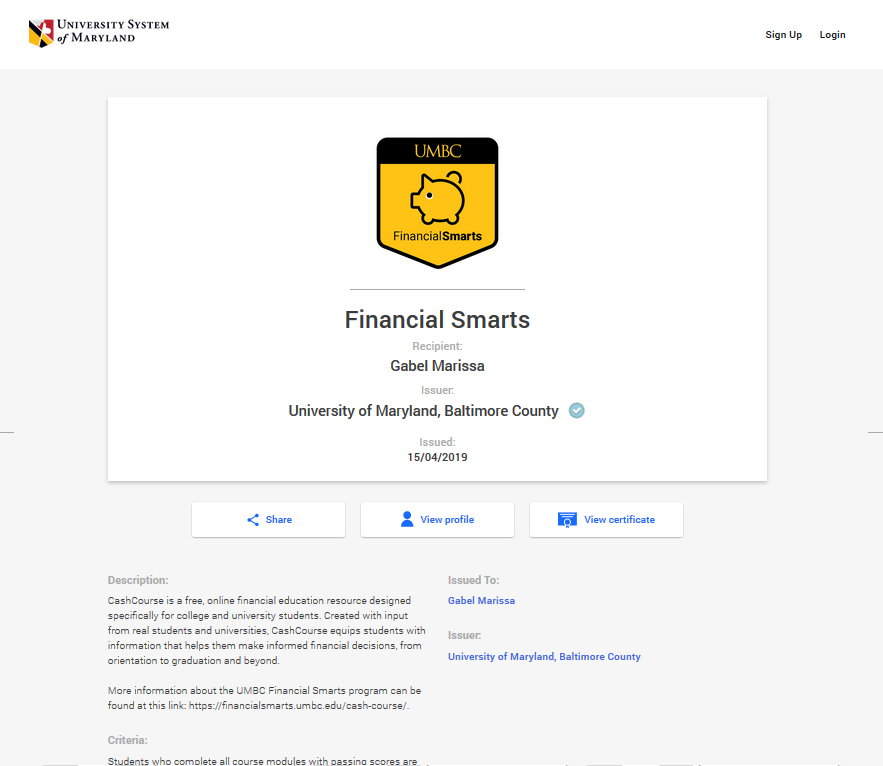
Le système permet de générer un certificat plus classique en PDF pour impression.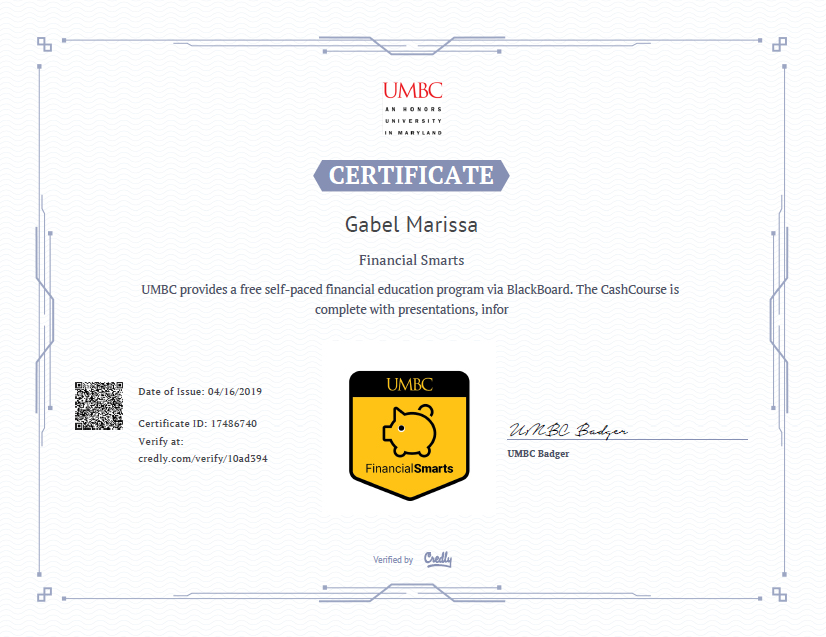
Usage intéressant pour augmenter la collaboration entre les institutions d’études supérieures. Au Québec, le réseau Université du Québec et la Fédération des cégeps pourraient jouer ce rôle. Ils l’ont déjà expérimenté avec Badge numérique réseau Université du Québec (UQ) : Autoformation pour les enseignants.









 L’Université de Baltimore semble être celle qui a créé le plus de ses propres badges numériques disponibles à travers la même plateforme.
L’Université de Baltimore semble être celle qui a créé le plus de ses propres badges numériques disponibles à travers la même plateforme.





